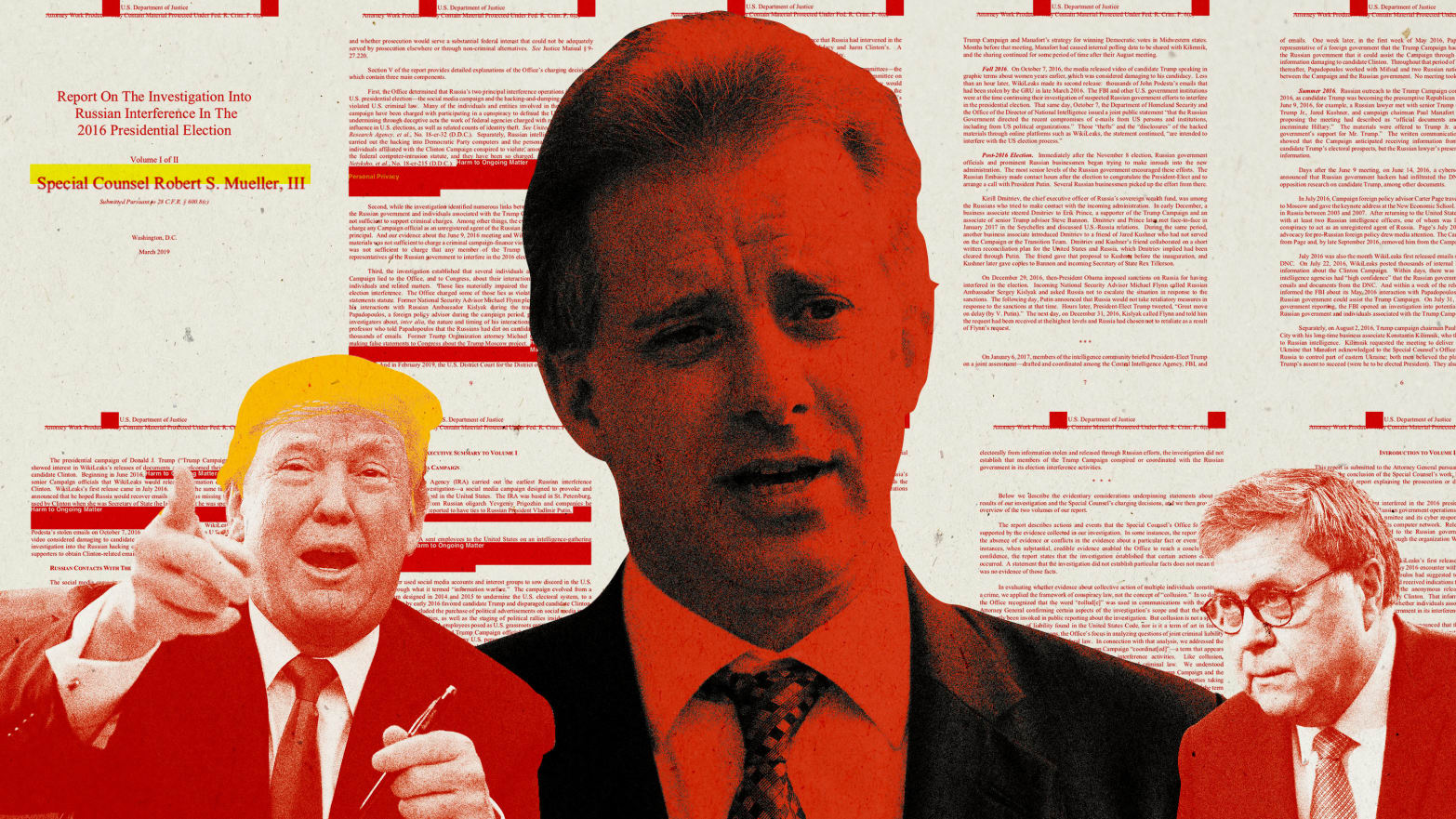OXFORD, England—Christopher Steele, a former British spy who compiled the notorious dossier on Donald Trump’s relationship with Russia, attacked the Mueller Report and Trump’s Department of Justice officials on Friday, in his first public remarks since his bombshell allegations were published in 2017.
Speaking to students at Oxford University in England, he described the probe into Russian interference as having failed to do any “drilling down into financial networks and leverage,” which he said was “the way Russian influence works.”
His appearance at the Oxford Union, a 200-year-old debating society, was held in private but attended by The Daily Beast.
Steele said he had been interviewed by Robert Mueller's team probing potential collusion between the 2016 Trump campaign and the Russian government for “two whole days” but said: “I was surprised that very little of what I had discussed with them appeared in the final report.”
He criticized the report for being “too narrow” and failing to follow up on crucial evidence. “There were many things about the report that were good… but other (aspects) that were not so good,” he said.
Steele said the fact that “a number of witnesses—including for instance, Donald Trump Jr.” had avoided being interviewed “wasn’t great.”
The former head of the Russia desk at Britain’s MI6 said it was no surprise that Trump did not appreciate the work of the secret service. “Trump himself doesn’t like intelligence because its ground truth is inconvenient for him,” he said.
Steele also attacked the U.S. Department of Justice’s inspector general report on the Russia probe, which criticized the FBI’s interactions with him, when The Daily Beast asked him about its findings.
Steele described having cooperated with the inquiry over “4 to 5 months” but he said he had seen some “very bad qualities” from U.S. officials, whom he accused of acting in “bad faith.”
Trump’s attorney general, Bill Barr, has now appointed U.S. Attorney John Durham to lead a further probe into the origins of the Russia investigation, which was originally labelled “Crossfire Hurricane.”
Barr has asked Durham to examine whether there was any criminality involved after DOJ Inspector General Michael Horowitz found “serious errors” in the FBI’s work, conducted amid the tumultuous conditions of the 2016 presidential campaign.
Steele said he would not cooperate with Barr and John Durham’s new investigation, saying he and his private investigation company Orbis Business Intelligence had already “done our duty” by cooperating fully with the IG report.
“As far as I’m concerned,” he told students. “We’ve said everything we have to say on the matter.”
He said that he had fulfilled his obligations toward them, "including confidentiality," but that they had failed to reciprocate.
Steele would not say whether anyone from the Department of Justice had contacted him in relation to Durham’s new probe.
Steele’s dossier on Trump’s dealings with Russia sensationally alleged that Russian intelligence had spent many years compromising the former businessman—including rumors that Trump had been filmed in a Moscow hotel engaging in lewd acts with prostitutes.
The Mueller Report dismissed many of the claims in the dossier, including the allegation about the compromising hotel tape. The special counsel also discounted allegations that Trump’s lawyer Michael Cohen had traveled to Prague to meet Kremlin officials and claims that Carter Page had met with senior Russian figures.
Steele told the students in Oxford that he was still confident in his report’s conclusions. “We stand by the integrity of our work and the integrity of our sources,” he said.
Steele also advocated for Western governments to take a more aggressive stance against Russian interference, describing President Putin as a “bully” and pointing out that “the psychology of bullies suggests that if you hit them once, they might hit you back, but they won’t bother you again.”
Many Republicans, led by President Trump, have alleged political bias in Steele’s work because his research company was hired by American firm Fusion GPS, which had been conducting opposition research on Trump on behalf of his Republican primary challengers. The Clinton campaign later picked up the tab. Steele dismissed the allegations of bias, describing himself as simply “an opponent of President Putin.”

